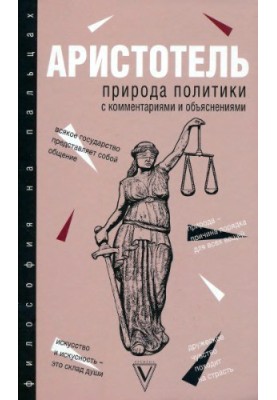Nature of policy
 Instant download
Instant download
after payment (24/7)
 Wide range of formats
Wide range of formats
(for all gadgets)
 Full book
Full book
(including for Apple and Android)
A student of Plato and a teacher of Alexander the Great, Aristotle differed from other philosophers in his universality - his sphere of interest was not only philosophy, but also physics, mathematics, chemistry, biology and sociology. The ideas expressed by him two and a half thousand years ago have not lost their relevance today. To make sure of this, it is enough to open any of his books .. Aristotle devoted his treatise "Politics" to the creation of an ideal state. In it, he argues with Plato, believing that the teacher's project uses unsuccessful methods of management and types of social organization. In "Physics" - Aristotle worked on it all his life - the philosopher managed to show the development and formation of this science, which before him as a separate discipline did not exist at all. And in the “Nicomachean Ethics” the philosopher talks about how a person can become happy, acquire virtue and good. Aristotle considers the latter, by the way, as the science of the state. All texts are provided with detailed comments and explanations.
LF/443331977/R
Data sheet
- Name of the Author
- Aristotle
- Language
- Russian
- Series
- Philosophy on fingers
- ISBN
- 9785170972609
- Release date
- 2018












